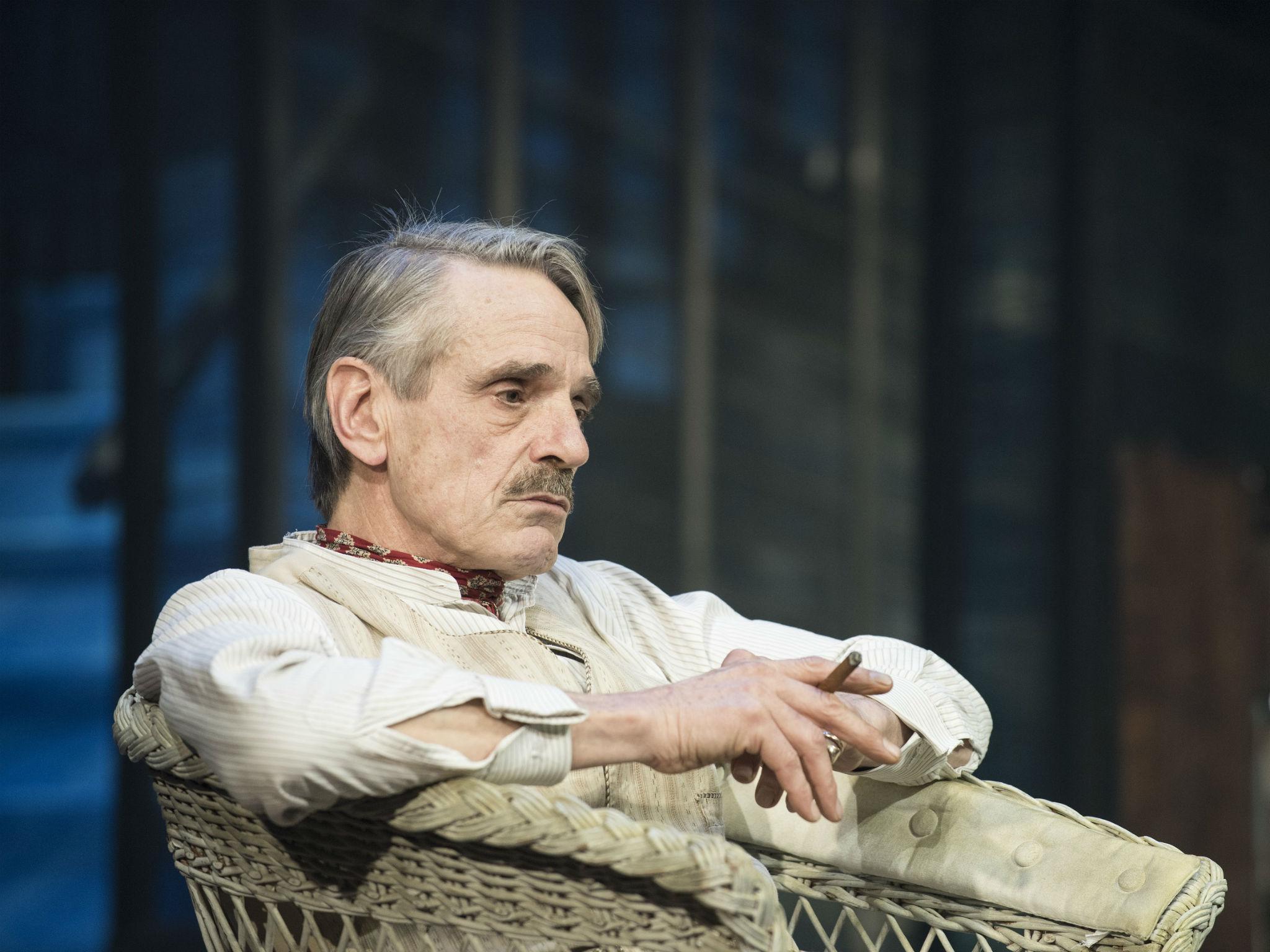Long Day's Journey into Night, Wyndham's Theatre, London, review: Shatteringly good
Jeremy Irons and Lesley Manville star in Richard Eyre's revival, an unmissable masterpiece

Your support helps us to tell the story
From reproductive rights to climate change to Big Tech, The Independent is on the ground when the story is developing. Whether it's investigating the financials of Elon Musk's pro-Trump PAC or producing our latest documentary, 'The A Word', which shines a light on the American women fighting for reproductive rights, we know how important it is to parse out the facts from the messaging.
At such a critical moment in US history, we need reporters on the ground. Your donation allows us to keep sending journalists to speak to both sides of the story.
The Independent is trusted by Americans across the entire political spectrum. And unlike many other quality news outlets, we choose not to lock Americans out of our reporting and analysis with paywalls. We believe quality journalism should be available to everyone, paid for by those who can afford it.
Your support makes all the difference.When Eugene O’Neill described Long Day’s Journey into Night as a “play of old sorrow, written in tears and blood”, he was not exaggerating. This enormous autobiographical drama, written in 1939-40, is so raw and remitting in its revelations about his dysfunctional Irish-American family that the author left instructions – happily disobeyed by his widow – that the play should not be be staged until 25 years after his death.
Richard Eyre’s revival, which began life in Bristol and now comes into London with the Tyrone sons recast, is shatteringly good. After three-and-half-hours of witnessing whisky-soaked recrimination and morphine-fuelled denial, you emerge drained but in that state of elation to which only true tragedy, confronted searchingly and honesty, can bring you.
Eyre conducts the piece with a masterly touch, its repetitions, as the same scabs are picked at over and over and again, coming across like the emotionally incremental recapitulations in a great piece of music. The production begins at a hectic lick, with Tyrone clan overlapping in their jabber at breakfast time, but gradually the rhythms become more spacious.
Jeremy Irons plays the skin-flint actor-patriarch James Tyrone, who has made a fortune perpetually touring a hunk of hokum. Nowhere is he finer than in the quiet passion with which he confesses, to his younger son Edmund, the origins of his miserliness in a destitute childhood and his shame at the bastardising of his talent for money. Even after this seemingly cathartic unburdening, though, Irons’s sly Tyrone is still incorrigibly turning off the light-bulbs and offering to pay for any sanatorium “within reason”.
The production is wonderfully alert to the way that the characters swing on an axis between love and hate, protectiveness and attack, desire for change and ingrained habit. So there’s at once a pulse of tragic inexorability and a (sometimes blackly comic) moment-by-moment precariousness. The divide between patting one another affectionately and going for the jugular can depend on the touchy interpretation of a single phrase.
Lesley Manville gives a scorchingly brilliant account of the contradictions impelling Mary Tyrone, the morphine-addicted mother. She affectingly complains of loneliness and of never having had a proper home, as the wife of a touring actor, but she has an addict’s irritable need to be on her own, away from the watchful gaze of her family.
There’s a piteously forced vivacity to the garrulous girlishness of her diversionary tactics and a terrible frustration of religious fervour to her idealised memories of her convent school. She combines fluttering fragility with shockingly venomous outbursts, rose-tinted nostalgia and biting dismissiveness. “I love you, dear, in spite of everything,” says Mary, as she plonks herself on her husband’s lap. It’s a great strength of Irons’s performance, which is a bit insecure in the American accent department, that he convinces you that, though sorely tried, James Tyrone feels the same way about her.
The translucent walls of Rob Howell’s striking set give the proceedings a poetic freedom from period clutter while firmly suggesting that this is the family’s summer retreat. Matthew Beard is excellent, conveying with wry wit and yearning the poetic streak in Edmund, the stoic, consumptive younger son, who has the elongated, slender outline of a figure in a Beerbohm cartoon. The splendid Rory Keenan makes a devastating impact as the dissolute might-have-been Jamie when, in a reeling-drunk clutch in the final scene, he warns his brother of the murderousness of his devotion towards him. Doting destructiveness; well, he’s not a Tyrone for nothing.
An unmissable masterpiece.
Until 7 April (www.delfontmackintosh.co.uk)
Join our commenting forum
Join thought-provoking conversations, follow other Independent readers and see their replies
Comments